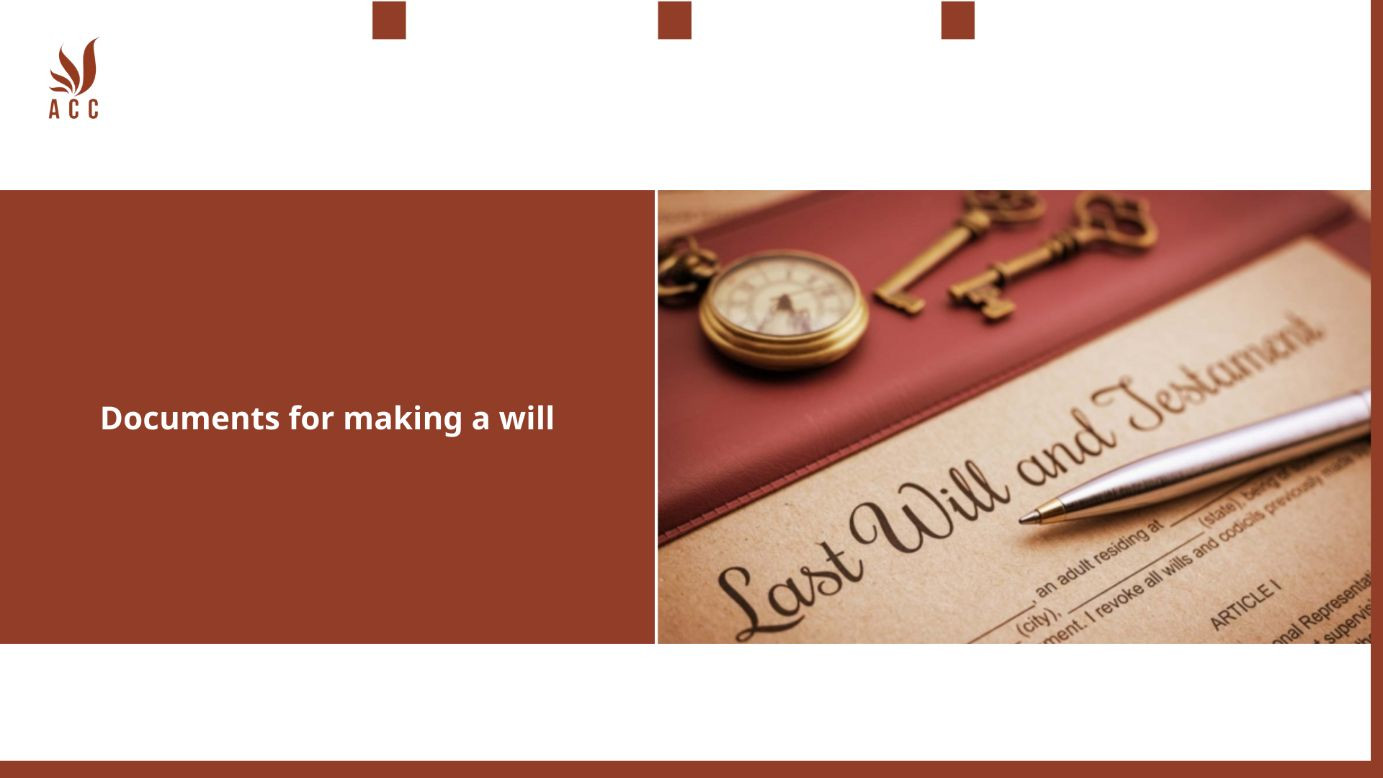In most cases, you do not need a medical certificate or a specific medical evaluation to make a will. However, there are important considerations related to your mental capacity and competence when creating a will. Here are some key points to understand:
1. Mental Capacity:
To create a valid will, you must have the mental capacity to understand the nature and consequences of your actions. This means you should be of sound mind and able to make rational decisions regarding the distribution of your assets.

2. Undue Influence:
You should create the will voluntarily, without being subjected to undue influence or pressure from others. Undue influence occurs when someone manipulates or coerces you into making decisions that you would not otherwise make.
3. Legal Requirements:
While a medical certificate is not typically required, some jurisdictions may have specific legal requirements regarding mental capacity and competence when creating a will. These requirements vary by jurisdiction and can include factors such as understanding the value of your assets and the identities of your beneficiaries.
4. Witnesses:
Witnesses to your will play a critical role in verifying that you have the mental capacity to create the will. They should attest that you appeared to understand the document you were signing and that you were not under duress or undue influence.
5. Notarization (if required):
Some jurisdictions may require notarization of wills, which involves a notary public verifying your identity and acknowledging your signature. While this is not a medical evaluation, it can provide an additional layer of authentication.
6. Legal Advice:
It's often advisable to consult with an attorney experienced in estate planning when creating a will. An attorney can help ensure that your will is legally valid, properly executed, and that your mental capacity is appropriately documented.
If there are concerns about your mental capacity when creating a will, or if you have a medical condition that might affect your capacity, it's important to discuss these matters with a qualified attorney. In some cases, a medical evaluation may be recommended to assess your mental capacity and provide documentation that can support the validity of your will.
7. When using ACC Law Firm's testament, entrepreneurs will receive
8. Q&a
Q1: What are the essential documents needed for making a will?
A1: The essential documents needed for making a will typically include:
-
Last Will and Testament: This is the primary document that outlines your wishes for the distribution of your assets and property after your passing.
-
Executor Designation: Some wills include a document designating an executor who will be responsible for carrying out the instructions in the will.
-
Witness Statements: To validate the will, it's important to have witnesses present when you sign it. Witness statements or affidavits may be required to confirm the proper execution of the will.
Q2: Do I need an attorney to create these documents for making a will?
A2: While you can create a will without an attorney, consulting with an attorney who specializes in estate planning can be beneficial, especially for complex estates or when legal advice is needed. Attorneys can help ensure that your will complies with local laws and can provide guidance on the specific documents required in your jurisdiction.
Q3: Are there any additional documents that may be needed when making a will?
A3: Depending on your circumstances and the complexity of your estate, you may need additional documents, such as:
-
Living Will or Advance Healthcare Directive: This document outlines your healthcare preferences and appoints a healthcare proxy to make medical decisions on your behalf if you become unable to do so.
-
Power of Attorney: A power of attorney document designates someone to manage your financial affairs if you are unable to do so.
-
Trust Documents: If you have a trust as part of your estate plan, you will need trust documents specifying how the trust operates and how assets are managed.
-
Guardianship Documents: If you have minor children, you may need to include documents that designate guardians for them in case of your death.
Q4: How should these documents for making a will be stored and maintained?
A4: It's crucial to store and maintain these documents in a secure and accessible manner. Consider the following:
-
Secure Location: Keep the original will and related documents in a secure location, such as a personal safe, a bank's safe deposit box, or with your attorney.
-
Copies: Maintain copies of all documents, and inform a trusted individual, such as the executor or a family member, about their location.
-
Updates: Review and update your documents periodically to reflect changes in your circumstances or wishes.
-
Legal Advice: Consult with an attorney if you have questions about the storage or maintenance of these documents, as legal requirements may vary by jurisdiction.
Nội dung bài viết:






Bình luận